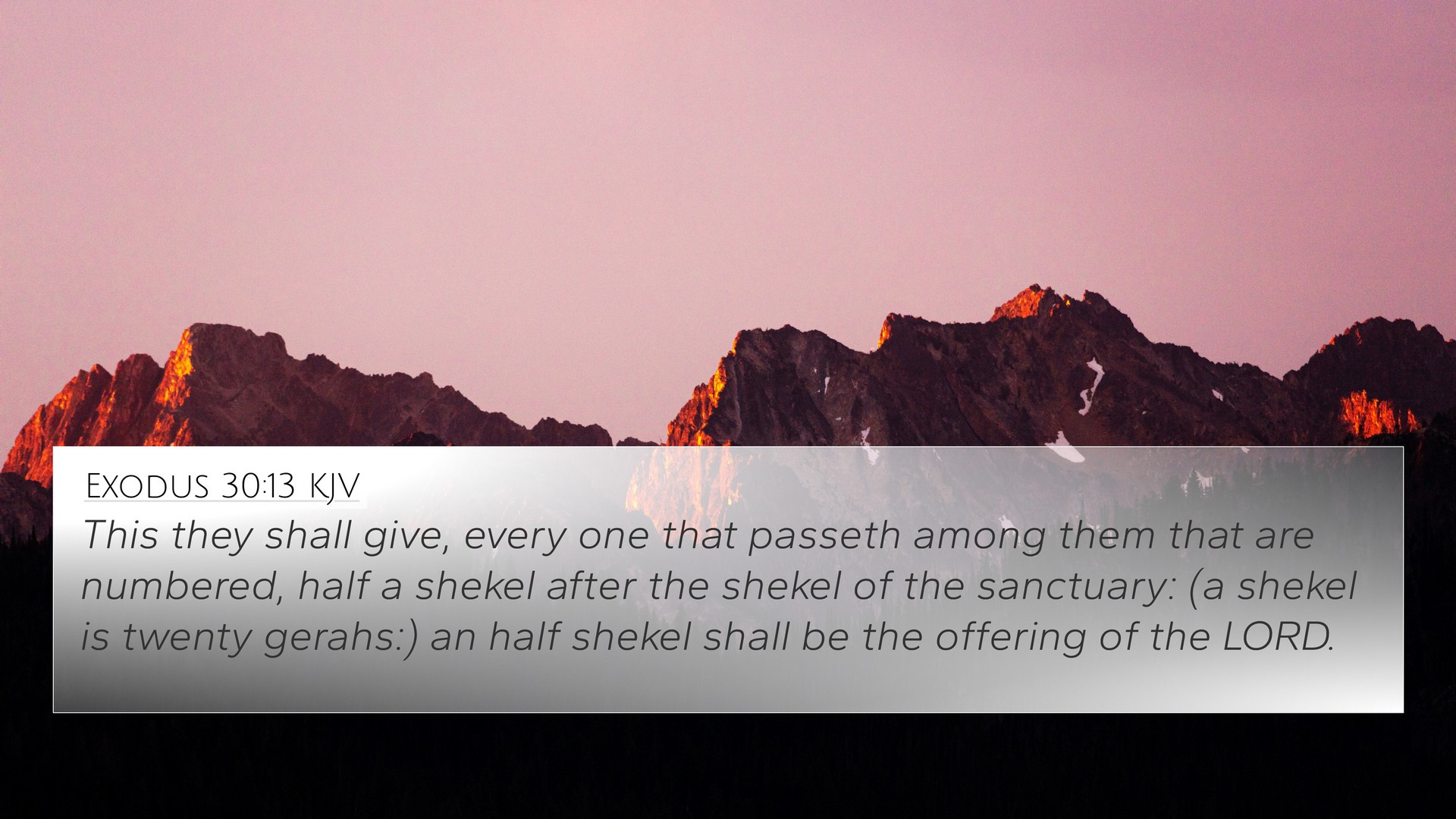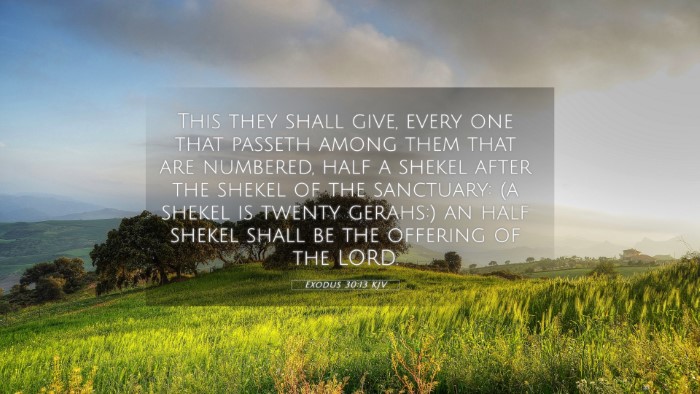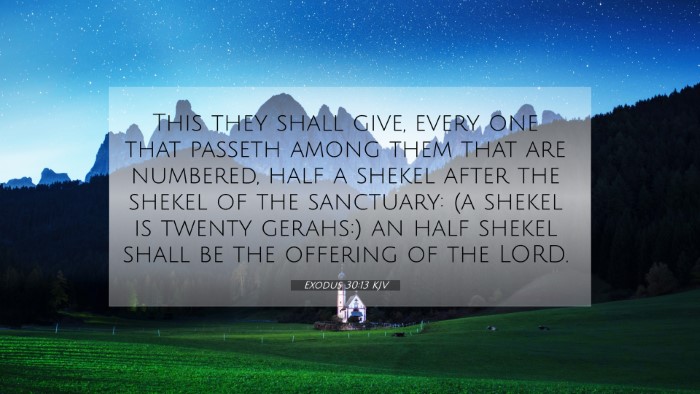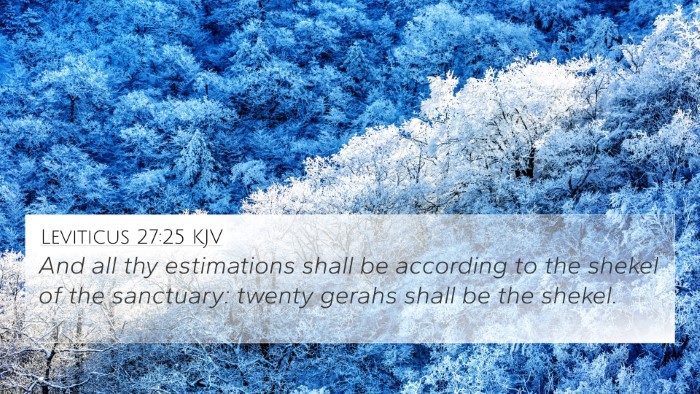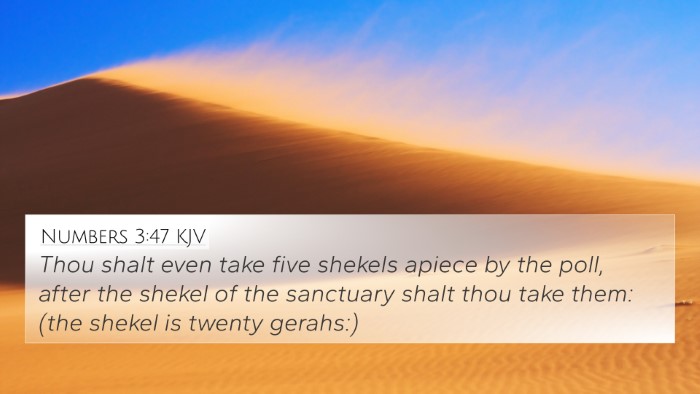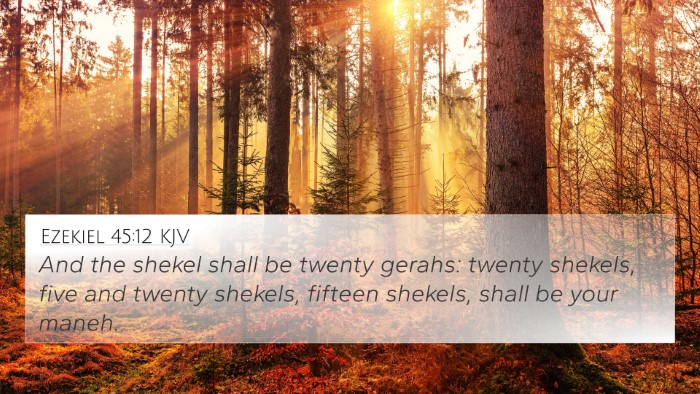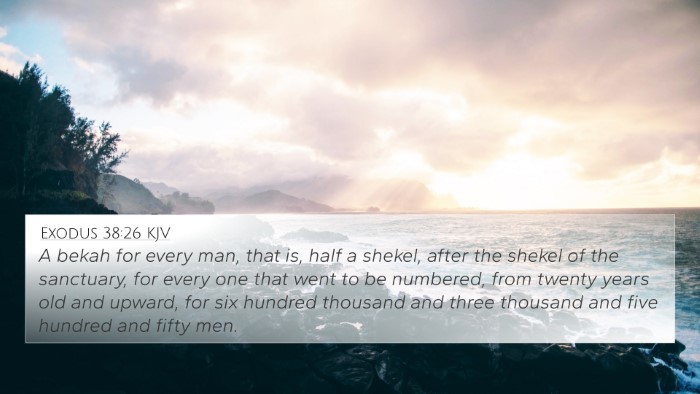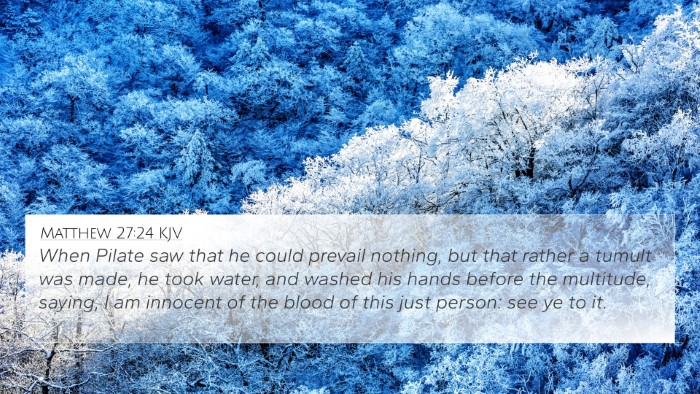Understanding Exodus 30:13
Verse: Exodus 30:13 states, "This shall they give, everyone that passeth among them that are numbered, half a shekel after the shekel of the sanctuary: a shekel is twenty gerahs: an half shekel shall be the offering of the LORD." This verse outlines the specific requirement for a monetary offering from each person counted in the census of Israel, emphasizing the importance of contributing to the sanctuary.
Insights from Public Domain Commentaries
Matthew Henry: Henry emphasizes the significance of this offering as a reminder of the price of redemption. It signifies that every individual has value in the eyes of God and must contribute to the community of faith. Henry notes that this offering represents an acknowledgment of God's deliverance and provision for His people.
Albert Barnes: Barnes provides insight into the cultural and historical context of the half-shekel. He situates it within the framework of ancient Israelite society, highlighting its use as a means of supporting the tabernacle and the Levitical priesthood. He also draws attention to the equality this offering represents, as every individual, regardless of wealth, is asked to contribute the same amount.
Adam Clarke: Clarke elaborates on the technical aspects of the shekel and its valuation, noting its role in ancient commerce. He stresses the importance of this offering as an act of obedience and public acknowledgment of God's sovereignty over Israel. Moreover, he discusses how this contributes to the communal identity among the Israelites, united in purpose and worship.
Bible Verse Cross-References
Exodus 30:13 is interconnected with several other passages in the Bible that illuminate its themes of contribution, community, and divine obligation. Below are notable cross-references:
- Exodus 30:14-15: Expands on the requirement for offering, underscoring the equality of every person regardless of wealth.
- Leviticus 27:25: Discusses the valuation of sacred things and the principle of offering.
- Matthew 17:24-27: Jesus speaks of the temple tax, linking to the concept of contributing for sacred purposes.
- 2 Corinthians 8:12-15: Highlights equality in giving among believers, reflecting the spirit of Exodus 30:13.
- Exodus 38:26: Details the actual amount collected from the census, reaffirming the initial command.
- Psalms 49:7-8: Exhibit the value of redemption, complementing the notion of monetary offerings.
- 1 Timothy 6:10: Addresses the love of money, relating to the heart attitude behind offerings.
- Malachi 3:10: Calls God's people to bring in the full tithe, echoing the necessity of contributing to God's work.
- Philippians 4:10-19: Discusses supporting the ministry, reminiscent of the purpose behind the offerings of Exodus.
- Exodus 23:15: Relates to the importance of offerings during sacred festivals, linking to the communal needs.
Thematic Connections
The themes present in Exodus 30:13 resonate throughout Scripture, establishing a broader conversation on the role of offerings, communal responsibility, and God's provision:
- Redemption: The offering serves as a reminder of the redemption God provided to Israel, which can be seen in other contexts, such as Jesus’ sacrifice.
- Equality: The requirement highlights the importance of equality in God's eyes among His people, reiterated by Paul in his letters.
- Community Worship: The act of giving contributes to the space where worship occurs, reflecting the collective worship seen in Acts 2:44-47.
- Sacred Space: Each contribution goes toward the construction and maintenance of a sacred space, an idea echoed in 1 Corinthians 6:19-20 regarding our bodies being temples of the Holy Spirit.
- Stewardship: The offering is a practical act of stewardship, something believers are encouraged to consider in their own lives.
Conclusion
In summary, Exodus 30:13 serves as a vital biblical precedent for understanding the significance of offerings in the life of a believer. It emphasizes the themes of redemption, equality, and communal responsibility. By engaging in comparative Bible verse analysis, one can see the interconnectedness of these themes within the broader narrative of Scripture.
Utilizing tools for Bible cross-referencing can significantly enrich personal study and understanding. Whether through a Bible concordance or a specific Bible cross-reference guide, exploring these connections provides deeper insights into God's Word.
As we reflect on this verse and its implications, let us consider how we contribute to the community of faith, echoing the principles established in Exodus 30:13.
